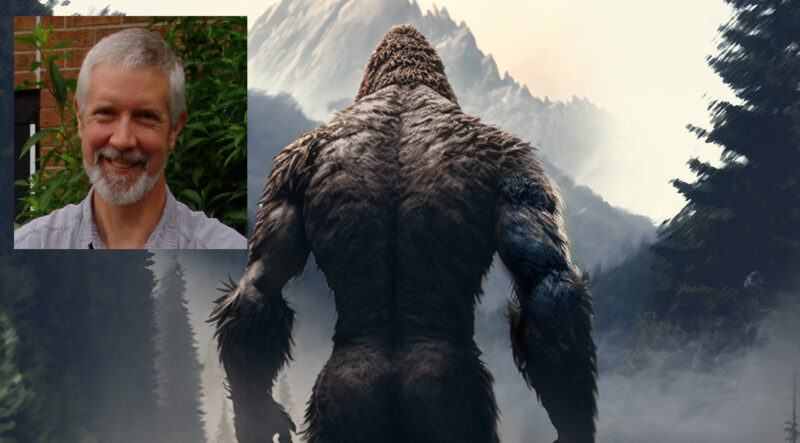Trepidation was stalking Travis Watson like a wild animal when he was writing Sasquatch Canada: Beyond British Columbia.
Much like the eight-foot-tall suspected primate of Canadian folklore, his consternation loomed over him, giving him complicated feelings, as the subject of Bigfoot is one that heightens division.
“There’s just an awful lot more energy around this book for some reason than has seemed to happen with my other books,” the 62-year-old Kitchener resident said, during a phone interview. “I think part of that is the subject matter is Sasquatch (and) I think it’s also where I located the book. There are not too many people writing about Canada.”
The lack of Canadian content was the impetus for Watson, who writes under the pen name W.T. Watson, to move forward with his book.
“The people who know anything about the subject almost automatically start to focus on the Pacific Northwest,” he said. “If you dive deep into some of Loren Coleman’s stuff, you can find references to an incident in Cobalt, Ontario.”
Watson crafted Sasquatch Canada: Beyond British Columbia for Beyond the Fray Publishing throughout the early stages of the pandemic, after moving to the Kitchener area from New York State with his partner Stacey, who is Canadian. The Texan-by-birth, Canadian-by-choice writer has fallen in love with Canadian folklore and felt the need to share his adopted country’s tales.
“Pretty much, you’d think that Canada was this big sheet of ice and nobody lives there,” he said of books written in the United States about Canadian Sasquatch sightings. “That’s just not the case. Every province in Canada (has a sighting).”
Except maybe Nunavut, but Watson said he suspects it might be the lack of witnesses coming forward with their own experiences.
Sasquatch Canada is not his first exploration of cryptozoological tales. His first book, Hunting the Beast, was a fiction novel that played on the phantom black dog folklore. After discussing the folklore with the publishers at Beyond the Fray, another book, Phantom Black Dogs: Walkers of the Liminal Way manifested.
“I’ve kind of stepped into this sideways,” Watson said of writing paranormal non-fiction. “But I’ve always been interested in what I call the Fortean. I’m a generalist. I’m interested in all of it.”
Canadian Monsters & Mysteries was Watson’s first foray into Canadian folklore of the uncanny variety. But there was some hesitation for him to dabble into a very saturated market: Sasquatch.
“I’ve been torn about writing a Sasquatch book because, on the one hand, I’m fascinated by the subject, but on the other hand, it’s super divisive,” he admitted. “There are the flesh and blood proponents, and there are the other people, and ne’er the twain shall meet.”
Watson admitted he is a both/and thinker. He said he’s willing to believe there is an unknown primate wandering the distant wilderness, but he said he’s willing to explore the strange things that surround the phenomenon.
“There are lots of people who see Sasquatch, and they saw a bear in the woods,” he said. “But then there are the people who have weird experiences.”
It’s those strange experiences that Watson wants to explore deeper in a further book.
“I don’t know that we’re ever actually going to find out what a Sasquatch is, honestly,” he admitted. “I’m not opposed to the idea that there is a flesh and blood creature out there, but my viewpoint tends more toward the Indigenous folks who believe Sasquatch is a creature that walks between worlds.”
Regardless of which side of the Sasquatch debate Watson stands on, he’s thoroughly intrigued by the mystery behind it.
“That’s what keeps me in this business. I love the mystery,” he said with a laugh.

